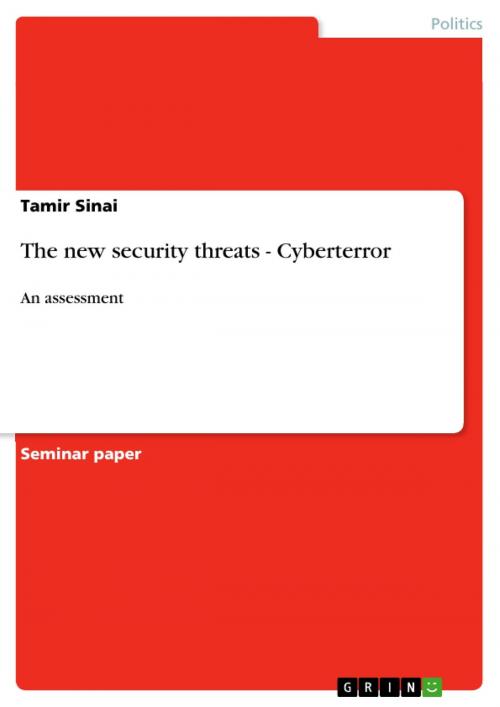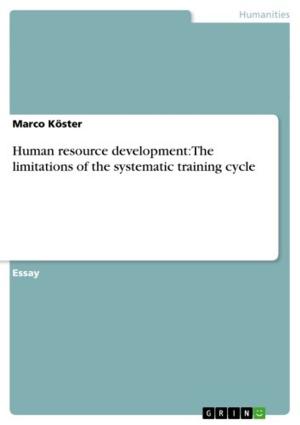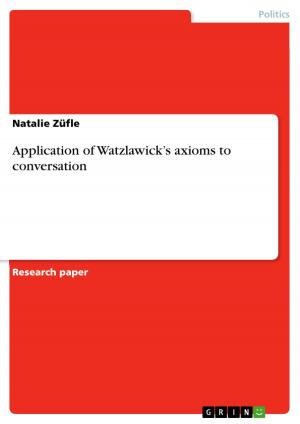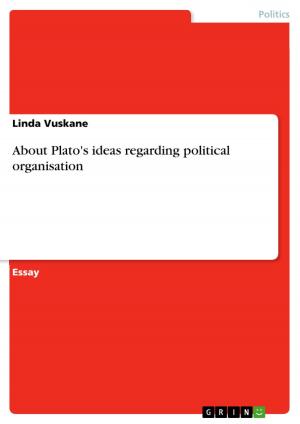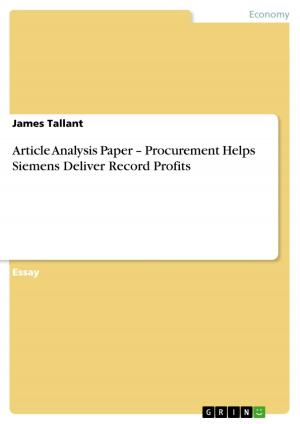The new security threats - Cyberterror
An assessment
Nonfiction, Social & Cultural Studies, Political Science| Author: | Tamir Sinai | ISBN: | 9783638877510 |
| Publisher: | GRIN Publishing | Publication: | December 17, 2007 |
| Imprint: | GRIN Publishing | Language: | English |
| Author: | Tamir Sinai |
| ISBN: | 9783638877510 |
| Publisher: | GRIN Publishing |
| Publication: | December 17, 2007 |
| Imprint: | GRIN Publishing |
| Language: | English |
Seminar paper from the year 2000 in the subject Politics - International Politics - Topic: Miscellaneous, grade: 90, erg International School - Hebrew University of Jerusalem, Israel (Department for Political Science), course: 'The Citizen and State in the Information Age, 52 entries in the bibliography, language: English, abstract: In this paper I will address the question if Cyberterror has to be viewed as one of the 'New Security Threats' that will have to be dealt with as we enter the next millenium. To answer this I will highlight some of the possible targets in modern digitized states, democratic or not, and the means with which these targets can, and have been attacked. Throughout the paper I will show that, if there is any doubt about motivation, attacks on these very targets by 'civilian' Hackers have been carried out ever since the whole phenomenum started. The question that has to be answered though is that of the reality and probability of cyberterror . Here the rationale is that if cyberattack is feasible, and if the means are available to the enemies of industrialized nations, than it will happen. This of course under the presumption that the will of these groups to hurt highly industrialized, capitalist, and western nations still exists; an assumption that is in my view save to make. Thus, lately, the US government, the EU, and others have included cyberattack in their list of the 'new security threats' that have to be faced into the next century. But criticism has arisen as well. Civil liberty advocates have voiced their concern that the states are crying 'wolf' so as to create a pretense to curtailing information freedom as it is facilitated by the net. So what is the net assessment that can be made on the subject? Is the new technology a tool of empowerment for the 'weak but angry'? What forms of use are to be expected on the net in regard to political activism? Are we facing an electronic Pearl Harbor, as some politicians and security experts would like us to believe? Who is the weak and who the strong in this equation?
Seminar paper from the year 2000 in the subject Politics - International Politics - Topic: Miscellaneous, grade: 90, erg International School - Hebrew University of Jerusalem, Israel (Department for Political Science), course: 'The Citizen and State in the Information Age, 52 entries in the bibliography, language: English, abstract: In this paper I will address the question if Cyberterror has to be viewed as one of the 'New Security Threats' that will have to be dealt with as we enter the next millenium. To answer this I will highlight some of the possible targets in modern digitized states, democratic or not, and the means with which these targets can, and have been attacked. Throughout the paper I will show that, if there is any doubt about motivation, attacks on these very targets by 'civilian' Hackers have been carried out ever since the whole phenomenum started. The question that has to be answered though is that of the reality and probability of cyberterror . Here the rationale is that if cyberattack is feasible, and if the means are available to the enemies of industrialized nations, than it will happen. This of course under the presumption that the will of these groups to hurt highly industrialized, capitalist, and western nations still exists; an assumption that is in my view save to make. Thus, lately, the US government, the EU, and others have included cyberattack in their list of the 'new security threats' that have to be faced into the next century. But criticism has arisen as well. Civil liberty advocates have voiced their concern that the states are crying 'wolf' so as to create a pretense to curtailing information freedom as it is facilitated by the net. So what is the net assessment that can be made on the subject? Is the new technology a tool of empowerment for the 'weak but angry'? What forms of use are to be expected on the net in regard to political activism? Are we facing an electronic Pearl Harbor, as some politicians and security experts would like us to believe? Who is the weak and who the strong in this equation?
